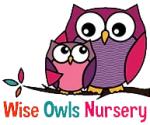Speech, Language and Communication Needs (SLCN) training
Private Session
Zoom Session
Recorded session
We have heart
We are authentic
We are reflective

Training for Early Years Settings
As a speech and language therapist and nursery owner/manager, I have trained over 900 early years practitioners in an early intervention project up here in Scotland and the training was well received as it gave practical tips on how to help ALL children and how to identify whether a child did need onward referral. It also empowered staff to support the children who they had referred whilst they were waiting for them to be seen, as well as broaching the subject with parents.
With Covid getting in the way of face-to-face training, I have been delivering Speech, Language and Communication training via Zoom for other nurseries recently. I’ve had some lovely feedback, so if you are interested in your staff receiving training, please don’t hesitate to get in touch:
“I thought you delivered it brilliantly, it flowed really well, you aimed it just right for our staff without using jargon or blinding them with science. The handouts are really useful, the building blocks posters are now displayed in both settings as good prompts and reminders. Your wealth of experience, interest and enthusiasm for SLC shone through.”
Webinars:
Contents covered:
how sounds are produced in the mouth
how we categorise / describe sounds
phonological processes – what are they?
speech sound development
different types of speech sound disorders
Length of Webinar: 32 minutes
Cost: £10.00
Watch this webinar on Cued Articulation, a set of hand gestures to represent sounds. Please note, I would only recommend introducing this to children aged 3 and above once they have good language skills.
Contents covered:
What is cued articulation?
A brief recap of how we categorise / describe sounds
Cued articulation versus other gestures
All the gestures for cued articulation
Length of Webinar: 28 minutes
Cost: £10.00
Watch this webinar on Raising Attainment by Boosting Early Language
Contents covered:
Why Focus on language in the early years?
Developing Communication Profiles
Universal Approaches
Targeted Approaches
Early Identification
Length of Webinar: 33 minutes
Cost: £10.00

Contact me for more information
The training that I recommend as a starting point is 2 x 2 hour sessions – usually over 2 twilight or evening sessions one week apart. This gives staff the opportunity to think about what we have discussed in between sessions. The first week covers:
•The importance of speech, language and communication for children’s wellbeing and learning
•What impacts upon speech, language, and communication development.
•The difference between speech and language and communication
•The building blocks of language.
•How speech, language and communication develop
•A look at Communication-Friendly Environments
Then the second session is as follows:
• providing opportunities for listening and talking
•effective everyday strategies to support speech language and communication.
•talking to parents about their child’s speech language and communication.
•recognising a problem in speech language and communication development and knowing how to support it
•understanding when to refer to speech and language therapy department.
•an opportunity to ask specific questions about children
